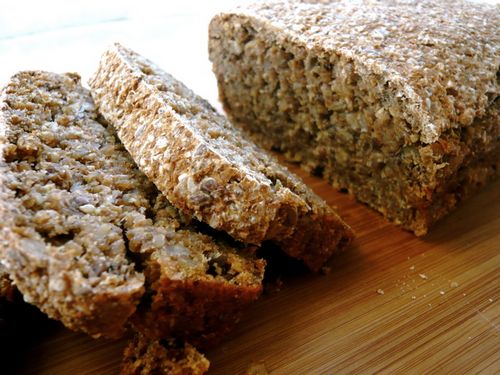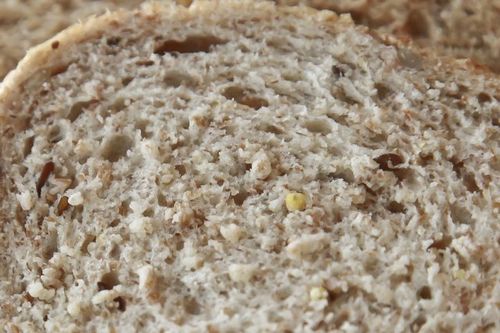Sprouted-Grain Bread

Most people are familiar with the health benefits of wheat bread. It has some of the best nutrients available, as well as a high-gluten content. However, did you know that there are sprouted wheat breads that are just as good?
Sprouted grains and beans are typically less in gluten, so the sprouting method breaks down gluten inhibitors, and therefore the bread is easier to digest, and has more nutrient content (more on that in a minute). The fact that Ezekiel’s bread has none added sugar is also good news for those who suffer from indigestion. There is one problem with sprouted bread – sprouts themselves can be a bit of a pain in the neck. There’s an important step to take when eating sprouted bread: take note of the amount of liquid that accumulates on the surface of your bread after you have finished eating it.
As the liquid contains a liquid that contains a lot of water, it can cause problems like a runny nose, diarrhea, and heartburn if you don’t take steps to remove it as soon as possible. The good news is that this liquid will usually wash out of the bread and into the trash (and this can be done without the use of an acidic cleaner, since sprouted bread tends to retain some of its acidic properties).
Also, bread that contains no additives is generally more stable, so it’s usually more durable and healthier as well. Also, some research has shown that people who have developed a wheat allergy have more difficulty digesting a grain-free bread.
Unfortunately, sprouted wheat bread is not the only option for wheat allergy sufferers. You can find bread that has no wheat flour or is made from all-purpose gluten free flour, as well as wheat-free cakes and biscuits. There are also breads that are gluten-free but still contain barley flour.
Some doctors think that wheat allergy sufferers may want to consider avoiding wheat products in the form of bread altogether. Sprouted grain bread has fewer carbs, thus minimizing the amount of carbohydrate in the diet, which in turn means less risk of developing a wheat allergy. Another alternative is to eat breads that contain barley, which is high in soluble fiber. or even whole grains. Sprouted wheat bread and barley have also been shown to reduce cholesterol.
Sprouted grain bread may be just what you need to maintain good health and avoid bad food choices. If you’re in need of bread, check online for options, or read some cookbooks that feature the best wheat-free recipes. There are other great bread recipes on the market as well.
Grain bread may not be the only choice for people who wish to eat wheat-free bread. Many recipes are available, such as oatmeal raisin bread, rye, whole wheat, and rye and barley bread.

In fact, the great thing about whole grain breads is that they are very tasty. The variety of bread is vast and it’s always better to have several varieties to experiment with and try a new recipe each time.
Sprouted grain bread is also available but not widely available, in stores. When it comes to wheat-free bread, it is important to remember that you don’t have to pay top dollar to enjoy a healthy, nutritious loaf. Since bread is such a staple for a healthy diet, it should not be overlooked.
Another great alternative to wheat allergy bread is barley bread, which is made with brown rice flour instead of wheat flour. which contains more protein and less carbohydrates than white flour. which makes for a delicious and filling treat. It can be made with a simple yeast dough or a baked loaf using whole grain ingredients.
Many people who suffer from a wheat allergy prefer to white bread, but it is not impossible to have both. Some sprouted grain bread and wheat-free bread.
Of course, some wheat allergy sufferers have the ability to tolerate a little bit of bread, but if you’ve tried all options and still have a problem with bread, you should speak to your doctor. They will probably recommend some type of wheat-free bread, which will still provide the nutritional benefits of wheat. but which won’t cause problems, like a reaction to the wheat flour. If this doesn’t work, they might be able to give you some advice for wheat-free breads, including wheat-free cakes and biscuits.
